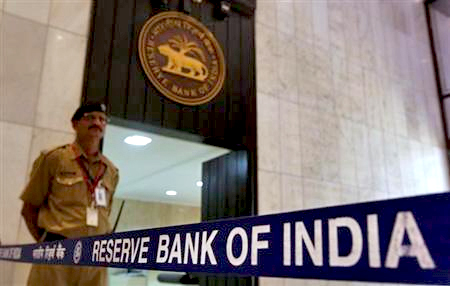 Mumbai, Sep 20: A hawkish RBI on Friday unexpectedly raised the policy rate by 25 basis points as it kept its focus on controlling inflation, which it felt would be above the expected levels in the current fiscal.
Mumbai, Sep 20: A hawkish RBI on Friday unexpectedly raised the policy rate by 25 basis points as it kept its focus on controlling inflation, which it felt would be above the expected levels in the current fiscal.
RBI governor Raghuram Rajan in his maiden policy review, however, eased liquidity though a reduction in the marginal standing facility rate, at which banks borrow from the central bank, to 9.5 per cent.
The repo rate or the short-term lending rate has been increased by 25 basis points to 7.5 per cent from 7.25 per cent with immediate effect.
The markets reacted negatively, with the sensex tanking by about 500 points while the rupee depreciated 69 paise to 62.46 against the dollar.
"The need to anchor inflation and inflation expectations has to be set against the fragile state of the industrial sector and urban demand. Keeping all this in view, bringing down inflation to more tolerable levels warrants raising the repo rate by 25 basis points immediately," Rajan said in the mid-quarter policy review statement.
He kept the cash reserve ratio (CRR), the portion of deposits that banks are required to maintain with the RBI in cash, unchanged at 4 per cent.
At the same time, the RBI reduced the minimum daily maintenance of CRR from 99 per cent of the requirement to 95 per cent effective from September 21, a move aimed at inducing liquidity into the system.
Driven by costlier food items, wholesale price inflation rose to a six-month high of 6.1 per cent in August.
Highlights of RBI's mid-quarter monetary policy review:
Key short-term lending rate (repo rate) hiked by 25 basis points to 7.5 per cent
Borrowing rate for banks reduced under MSF to 9.5 per cent
Minimum daily liquidity maintenance of CRR eased to 95 per cent from 99 per cent
Cash reserve ratio (CRR) retained at 4 per cent





Comments
Add new comment